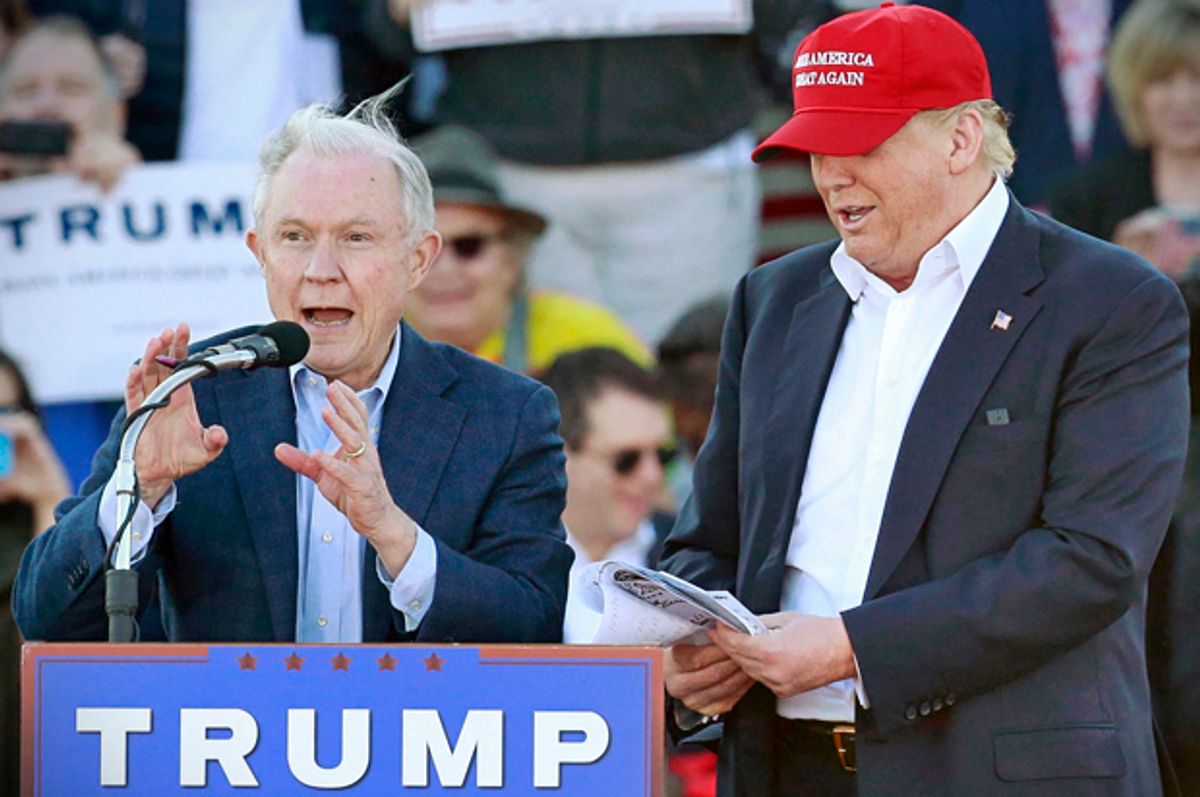The incoming Donald Trump administration could be an absolute nightmare for Dreamers: undocumented immigrants who were brought into the country as minors. After a series of failed attempts to legislatively address the uniquely precarious situation of these immigrants, who stand in violation of immigration law through no fault of their own, President Barack Obama issued an executive order creating the Deferred Action for Childhood Arrivals (or DACA) program, which shields them from deportation proceedings and grants them work permits.
But Trump, who ran as a hard-line anti-immigrant candidate and who has promised to rescind every executive order that Obama signed, can start dismantling those protections the moment he takes office.
So it was with some interest that I read Trump’s comments on Dreamers and DACA in Time’s big piece naming him the magazine’s “Person of the Year” for 2016. Here’s what Time reported:
As for the people who were brought to the U.S. illegally as youths and now have work visas under Obama, Trump did not back off his pledge to end Obama’s executive orders. But he made clear he would like to find some future accommodation for them. “We’re going to work something out that’s going to make people happy and proud,” he says, showing a sympathy for young migrants that was often absent during the campaign. “They got brought here at a very young age, they’ve worked here, they’ve gone to school here. Some were good students. Some have wonderful jobs. And they’re in never-never land because they don’t know what’s going to happen.”
The first thing to point out is that Trump hasn’t actually said anything here. Trump’s claim that “we’re going to work something out” is as meaningless as his promises to repeal the Affordable Care Act and replace it with “something terrific.” Until we know what exactly he has in mind, if anything, his position is unchanged. He’s still committed to rescinding DACA, which will heighten the risk of Dreamers being deported and make it more difficult for them to earn a living.
As for the sympathetic language he used, that’s nothing new either. Back in July 2015, Trump professed to be attuned to the “humanitarian” aspect of the Dreamers’ plight, and his idea of showing a “big heart” was to deport them but then “expedite” the re-entry of those Dreamers he deemed “terrific.” A key part of Trump’s pitch on immigration has been to express sympathy for immigrants but assert that the overriding concern is tough immigration enforcement.
“Look, it sounds cold; it sounds hard,” Trump told CNN when he was asked about deporting Dreamers, adding: “We have a country. Our country is going to hell. We have to have a system where people are legally in our country.”
To that point: Mass deportation is what Trump promised; it’s what his party supports and it's what his voters voted for. That’s what everyone should expect until such time as Trump indicates that he’s deviating from the policy positions he campaigned on. If Trump actually cared about Dreamers who live in “never-never land because they don’t know what’s going to happen,” he wouldn’t barrel forward with clawing back DACA, which will strip away their protection from that uncertainty.
And while Trump says nice, meaningless things about the amorphous “something” he’s going to do on behalf of the immigrant population he’s putting at risk, he’s populating his administration with anti-immigrant hardliners. Sen. Jeff Sessions, Trump’s pick for attorney general, has been one of the most vocal opponents of immigration reform in Congress. In 2010, as the DREAM Act (or the Development, Relief, and Education for Alien Minors Act), from which the Dreamers got their name, was coming up for consideration in the Senate, Sessions attacked it as “an immediate reward for . . . illegal entry” that “erod[ed] the respect for law through reckless and irresponsible amnesty provisions.”
Sessions won’t have direct control over immigration enforcement if confirmed for the AG post; he will control the Justice Department machinery that governs the legal proceedings surrounding deportation. This includes the Board of Immigration Appeals, an administrative body that hears appeals regarding deportation orders. Sessions will also be in charge of hiring immigration judges. During the George W. Bush administration, both the Board of Immigration Appeals and the hiring of immigration judges were subject to high levels of politicization.
When talking about the fate of the Dreamers, Trump’s adherence to DACA repeal and the presence of a hard-liner like Sessions at DOJ seem more pertinent than some nonspecific blather from the president-elect about putting “something” in place to “make people happy.”



Shares